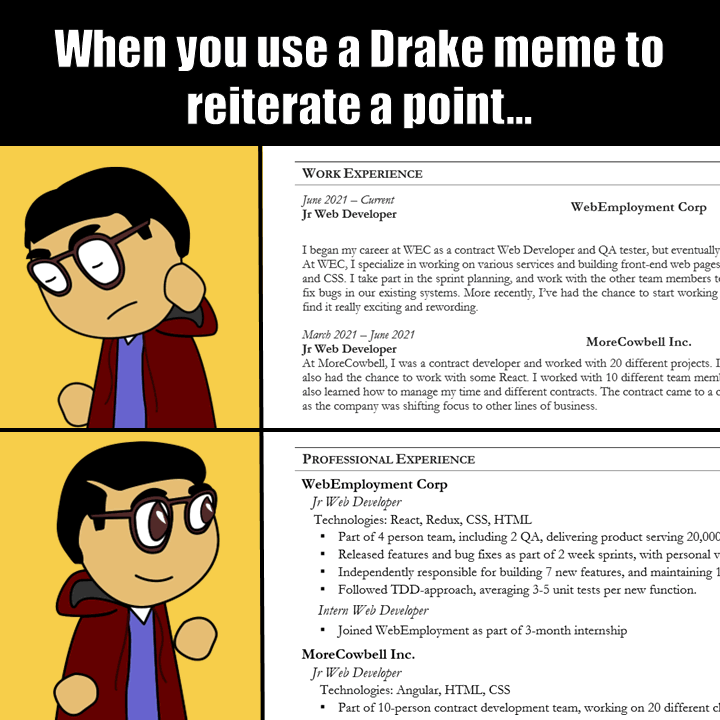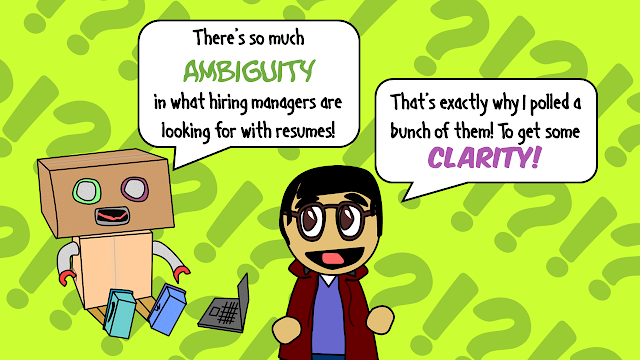Ideas for Building Experience to Land My First Job

This morning I was asking myself: If I was getting started in my career, today, knowing all the challenges that exist for those trying to get their foot in the door - what would I do? How would I set myself apart from other candidates?
Having my own website, having an amazing looking resume, having an active GitHub and polished LinkedIn - those are great and all, but none of them can compete with having experience. And there's the trouble - to get experience you need experience.
And so - if I were getting started today, how would I start building experience?
First: Quick builds. Starting from scratch, the last thing I'd want to do is sink myself deep into a huge project that never gets seen. Instead, I'd want to build some credibility quickly - and, if I could afford it, I'd focus less on making money. If I can cover costs - great, but if I couldn't... well, more on this in a second.
So what would I build?
0) First, I'd make sure I have my own website. This is important for the following steps...
1) I'd find people who are getting married and build them a wedding website. Wedding sites are quick and easy builds - a page of photos, links to registries, hotel information, embedded Google Maps. Static pages - nothing dynamic, no content-management systems. I'd use some simple cloud hosting and get a custom domain. Total cost would be about $15/year per website (and I'd only host for 1 year.) I'd be flexible with what I charge, but I'd ask for $50-100 - but I'd use my own website and previous wedding sites to showcase my abilities.
If I really wanted to cut my own costs, I'd buy a single generic wedding domain (for example, AreGettingMarried.com) and use subdomains to my advantage: SamAndShane.AreGettingMarried.com - now I'm only paying a one-time fee of $15/year.
2) I'd scour LinkedIn for people who are #OpenToWork - particularly those who may not be able to code but are in technical roles. Scrum Masters, QA Engineers, Product Owners, Product Managers, Project Managers, Security Engineers, etc. Again, still static web pages. I'd see if they'd contract me to build them a website and again direct them to my own website so they can see what I'm capable of doing.
In this case, I'd charge less: $20-$50 because I'm likely building less and people who are job hunting probably can't afford to spend much. I'm making a digital resume - and probably basing it off a repeatable structure (for example, I'd use something like my Portfolio MVP)
3) I'd build websites for bands - these are another flavor of wedding websites and embed YouTube videos of their songs to save on hosting. It can be tricky to find a band that's looking for a website - so I'd set my bar low. I'd ask my own friends, friends of friends, I'd talk to street musicians, I'd talk to bands playing bars on Tuesday nights. I'd look at college campus event boards to look for small concerts. I'd charge $50 - but I'd still be flexible.
4) Other opportunities I'd explore: College student groups, educators, tutors, independent realtors, academics.
That's how I'd start - and I'd do this for ~3 months and until I've built about 5-10 websites. I'd be applying to jobs throughout, but I'd be building these whenever I could. But truthfully, this may not be enough for me to get that first job.
These are the jobs that get me the next job.
So where do I go next?
I'd leverage the current volatility of the major social networks and pitch myself to small local businesses. In addition to looking on sites like Craigslist (yes, they still exist!) for small businesses that are actively looking for work, I'd find businesses that could benefit from having their own website.
Small restaurants selling Gyros, Shawarmas, Chinese food or Thai. I'd prebuild an example site - something simple that shows hours, location, a fake menu, and some pictures of the restaurant and dishes, and I'd offer that up. $200 - and I'd enable them to host on their own (using the same inexpensive approach for hosting the wedding websites) and show them how they could make updates on their own.
Let me take a quick pause here - because I know, this looks like it's taking a lot of time - but I'd make my work highly repeatable and anticipate a lot of rejection. Unfortunately, the world is saturated with websites, and people who build them - and despite the volatility, social networks have made many of these websites redundant. Part of my pitch lean on the uncertainty and present challenges (i.e., what if your customers are not part of social networks, and care about privacy? Alternatively, how are you missing out by not getting to use analytics tools on your site visitors?)
I'd try to get at least 2 of these done before finally moving to my third project: My own product. This may be something I've always been working on, but I'm listing it last only because this is now my opportunity to focus on my own broader skills and showcase my ideas - but working iteratively. I mentioned this earlier, but the worst thing that could happen to this project is it never completes due to scope. I'd start small and gradually expand over time - eventually spending an equal time between building and promoting. I'd focus on getting users - get their feedback, find out why they are not continuous users. I'd look for communities and groups that would be willing to help me test - and I'd slowly build traffic.
I'm taking a lot of liberties and making a lot of assumptions which I want to recognize. The truth is this is not too far off from how I'd actually started my own career. The last 6 months of my senior semester of college, I spent a lot of time building my experience in this way - my grades suffered a bit for it, in fact - but it did enable me to make a quick transition once I'd graduated. I was, luckily, in a position where I could afford to take this approach. It's not always possible - but if you can take this approach while you work different jobs, it could still help in the long run.
There's a big takeaway I want to call out in case it goes unnoticed: The experience you're gaining isn't just the obvious professional and project-based experience you can add to your resume. More importantly, it teaches a set of skills that are hard to come by. It teaches time management, project management, client management, expectations management, it teaches marketing, networking. It shows hustle.
It's these sets of skills that will set you apart from all other candidates as you interview.




